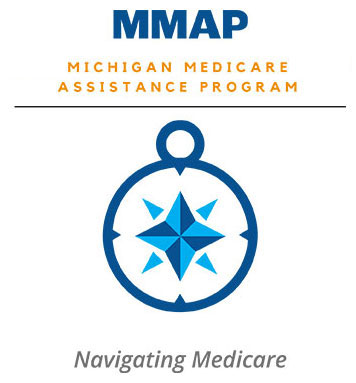CMS BLOG
http://blog.cms.gov/2016/10/20/cms-awards-special-innovation-projects-to-QIN-QIO
October 20, 2016
By: Patrick Conway, MD, MSc
Acting Principal Deputy Administrator
Deputy Administrator for Innovation and Quality
CMS Chief Medical Officer
Kate Goodrich, MD
Director
Center for Clinical Standards and Quality
Dennis Wagner, MPA
Director, Quality Improvement and Innovation Group
Centers for Clinical Standards and Quality
CMS Awards Special Innovation Projects to Quality Innovation Network-Quality Improvement Organizations Aimed to Drive Better Care, Smarter Spending, and Healthier People
The Centers for Medicare & Medicaid Services (CMS) has taken another step toward ensuring that beneficiaries receive better care, better value, and achieve better overall care, smarter spending, and healthier people by awarding 20, two-year Special Innovation Projects (SIPs) to 12 regional Quality Innovation Network-Quality Improvement Organizations (QIN-QIOs). The SIPs offer QIN-QIOs and their partners, clinicians, schools of higher education, innovation labs, and Medicare beneficiaries and their families the opportunity to address critical health care issues important to their constituency in the areas of quality improvement that may be underutilized, but represent a significant opportunity if spread locally, regionally, or nationally. QIN-QIOs serve the Medicare population by working with Medicare beneficiaries, providers, and communities in data-driven initiatives that increase patient safety, make communities healthier, better coordinate post-hospital care, and improve clinical quality. QIN-QIOs were eligible to submit proposals for two types of SIPs in 2016:
1. Projects addressing issues of quality occurring within the QIN-QIOs’ local service area: “Advance Local Efforts for Better Care at Lower Cost.”
2. Projects focusing on expanding the scope and national impact of quality improvement interventions that have proven success in limited areas or scope: “Interventions that are Ready for Spread and Scalability.”
Projects that “Advance Local Efforts for Better Care at Lower Cost” include:
• Great Plains QIN will work with 25 home health agencies in Kansas, Nebraska, North Dakota, and South Dakota to develop and test educational interventions to prevent and manage common infections observed in home health such as respiratory, urinary tract and wound infections.
• Health Services Advisory Group will be building capacity for telepsychiatry services in the Virgin Islands of St. Croix, St. John, and St. Thomas to address the lack of psychiatric specialty services available.
• TMF Quality Innovation Network will be working with 80 physician practices in Arkansas, Missouri, Oklahoma, and Texas to increase primary care physician knowledge of treatment for depression and alcohol use disorder through knowledge transfer from specialists to primary care physicians.
Topic areas for “Interventions that are Ready for Spread and Scalability” were identified through consultation with the Strategic Innovation Engine (SIE). The Strategic Innovation Engine (SIE) is a new endeavor that will advance CMS’ six quality goals by rapidly moving innovative, evidence-based quality practices from research to implementation throughout the QIN-QIO program and be made available to the greater health care community. The SIE will serve as an instrument in furthering the science of improvement to better inform quality improvement efforts in the future for QIOs and others that draws upon the literature, healthcare quality data, and experts and practitioners in the field to ensure safe, effective practices are available for use by providers seeking to improve quality and reduce costs.
These high leverage topic areas include streamlining patient flow in health care settings; working with health plans and care coordination providers on approaches to post-acute care that results in enhanced care management; increasing value, patient affordability, and appropriate use of specialty drugs by applying evidenced based criteria to prescribing practices; addressing acute pain management in sickle cell patients; and utilizing big data analytics to reduce preventable harm in health care. Examples of funded projects for “Interventions that are Ready for Spread and Scalability” include:
• Alliant Quality, utilizing the breakthrough collaborative model, will work with 30 emergency departments in Georgia and North Carolina to improve the triage, treatment, and quality of care received by patients with sickle cell disease who present to the emergency room in vaso-occlusive crisis (VOC). It is expected that interventions will result in appropriate and timely pain management and improved patient experience.
• Atlantic Quality Innovation Network, working in New York (Orange, Putnam, and Dutchess Counties) with physician offices, pharmacies, hospitals, nursing homes and county health departments, seeks to modify and standardize prescribing practices for managing anticoagulants during the periprocedural period to reduce anticoagulant adverse drug events in all patients, including Medicare Fee-for-Service beneficiaries. Interventions include the operationalization of a mobile/web-based application for clinical decision support in hospital/ambulatory surgery settings and optimization of patient education using health information technology.
• Qualis Health, working in Washington and Idaho, seeks to improve the quality, safety, and reliability of the care transition process by focusing on a comprehensive assessment of the social determinants impacting beneficiaries’ transitions from the hospital to the home and creating robust linkages to community social service providers for high-risk beneficiaries to improve care coordination and reduce avoidable medical care utilization.
CMS sought proposals with scientific rigor, a strong analytic framework and a reasonable, proposed intervention based on the supporting evidence. CMS looked for evidence of QIN-QIO partnerships at the community, regional and national levels, and inclusion of patients and families in each project as well as direct links to the CMS Quality Strategy goals.
A complete list of 2016 SIP awardees is located on the QIO Program website.
We are committed to innovation and are excited to study the results produced by these SIPs and to identify ways in which to incorporate them throughout the QIO Program based upon their results. The SIPs create an exciting opportunity for providers, professional organizations, innovation labs, and others to innovate and impact health care quality in the Medicare program at local, regional and national levels through the QIO Program.
###
Get CMS news at cms.gov/newsroom, sign up for CMS news via email and follow CMS on Twitter @CMSgovPress

